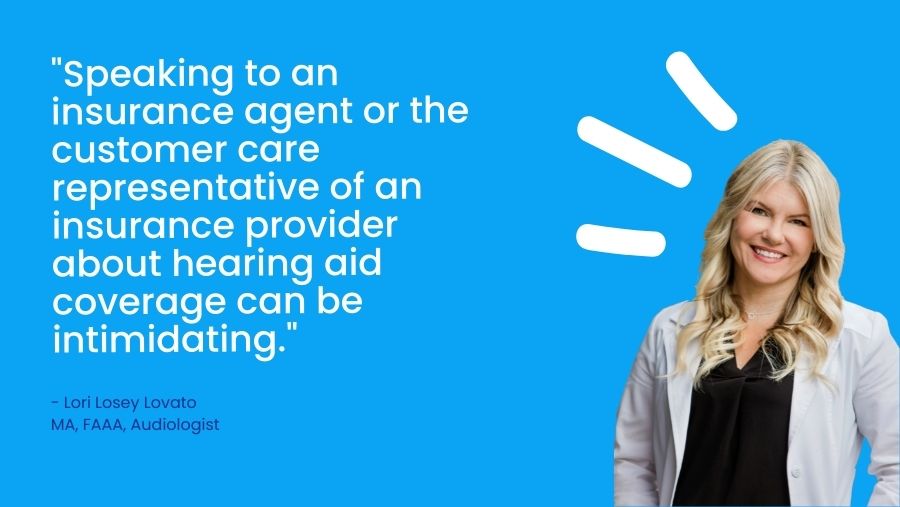Navigating the World of Health Insurance for Hearing Aids and Audiology Services-www.waukeshahealthinsurance.com
Navigating the World of Health Insurance for Hearing Aids and Audiology Services

Hearing loss affects millions, impacting communication, social interaction, and overall quality of life. Fortunately, advancements in audiology have led to sophisticated hearing aids and other assistive technologies that can significantly improve hearing. However, the cost of these devices and related services can be substantial. This is where health insurance plays a crucial role, offering varying levels of coverage for hearing aids and audiology services. Understanding your health insurance plan’s specifics is vital to accessing affordable and effective hearing care.
This article delves into the complexities of health insurance coverage for hearing aids and audiology services, exploring factors that influence coverage, common limitations, and strategies for maximizing your benefits. We will also discuss the importance of choosing the right plan and the steps to take when seeking hearing healthcare. For residents of Waukesha County, Wisconsin, resources like those available at www.waukeshahealthinsurance.com can be invaluable in navigating the local insurance landscape.
Understanding Health Insurance Coverage for Hearing Aids
The coverage of hearing aids and audiology services varies significantly depending on several factors:
Type of Insurance Plan: Medicare, Medicaid, and private insurance plans all have different policies regarding hearing healthcare. Medicare, for example, typically doesn’t cover the cost of hearing aids themselves, although it may cover some diagnostic testing. Medicaid coverage varies by state. Private insurance plans offer diverse levels of coverage, ranging from minimal to comprehensive. Some plans may cover a portion of the cost, while others may require significant out-of-pocket expenses. www.waukeshahealthinsurance.com can help you compare plans available in your area.
Plan Deductibles and Co-pays: Even with insurance coverage, you’ll likely encounter deductibles and co-pays. The deductible is the amount you must pay out-of-pocket before your insurance begins to cover expenses. Co-pays are fixed amounts you pay for each visit or service. These costs can significantly impact the overall expense of hearing aids and related services.

Pre-authorization Requirements: Many insurance plans require pre-authorization before covering hearing aids or audiology services. This involves obtaining approval from your insurance company before undergoing testing or purchasing devices. Failure to obtain pre-authorization can result in denied claims and significant out-of-pocket costs.

Hearing Aid Limitations: Even with coverage, insurance plans often impose limitations on the type and cost of hearing aids they will cover. They may only cover basic models, excluding advanced features or technologically superior devices. Coverage limits might also restrict the frequency of hearing aid replacements.
Audiology Services Coverage: Insurance plans typically cover some audiology services, such as hearing tests and evaluations. However, the extent of coverage can vary. Some plans may cover only basic tests, while others may cover more comprehensive evaluations, including speech therapy.

Maximizing Your Insurance Benefits for Hearing Healthcare
To maximize your insurance benefits for hearing aids and audiology services, consider the following steps:
Review Your Policy Carefully: Thoroughly review your insurance policy to understand your coverage for hearing aids and audiology services. Pay close attention to deductibles, co-pays, pre-authorization requirements, and any limitations on covered devices or services.
Choose an In-Network Provider: Selecting an audiologist and hearing aid provider who participates in your insurance plan’s network can significantly reduce your out-of-pocket expenses. In-network providers have negotiated discounted rates with your insurance company.
Obtain Pre-authorization: If your plan requires pre-authorization, obtain it before undergoing any procedures or purchasing hearing aids. This will help avoid unexpected costs and ensure your claims are processed smoothly.
Explore Different Hearing Aid Options: While your insurance may limit the types of hearing aids it covers, understanding your options and discussing them with your audiologist can help you find the best balance between cost and effectiveness. You may be able to find a covered model that meets your needs.
Consider a Health Savings Account (HSA) or Flexible Spending Account (FSA): If you have an HSA or FSA, you can use pre-tax dollars to pay for eligible medical expenses, including hearing aids and audiology services. This can significantly reduce your taxable income and lower your overall healthcare costs.
Contact Your Insurance Provider: If you have any questions or concerns about your coverage, contact your insurance provider directly. They can clarify your benefits and help you navigate the process of obtaining coverage for hearing healthcare. For Waukesha residents, exploring resources like those found on www.waukeshahealthinsurance.com can provide valuable local information and assistance.
Finding the Right Health Insurance Plan for Hearing Healthcare
Choosing a health insurance plan that adequately covers hearing aids and audiology services is crucial. When comparing plans, consider the following factors:
Coverage for Hearing Aids: Pay close attention to the specific coverage for hearing aids, including any limitations on the types of devices covered and the frequency of replacements.
Coverage for Audiology Services: Evaluate the extent of coverage for audiology services, such as hearing tests, evaluations, and speech therapy.
Deductibles and Co-pays: Compare the deductibles and co-pays for hearing aids and audiology services across different plans.
Network of Providers: Check whether the plan includes a network of audiologists and hearing aid providers in your area.
Overall Cost: Consider the overall cost of the plan, including premiums, deductibles, co-pays, and out-of-pocket maximums.
By carefully comparing plans and considering these factors, you can choose a plan that provides the best coverage for your hearing healthcare needs. Websites like www.waukeshahealthinsurance.com can help you compare plans available in your region.
Conclusion
Navigating the world of health insurance for hearing aids and audiology services can be challenging. However, by understanding your insurance policy, maximizing your benefits, and choosing the right plan, you can access affordable and effective hearing care. Remember to thoroughly research your options, contact your insurance provider with any questions, and utilize available resources, such as those provided by local insurance brokers or websites like www.waukeshahealthinsurance.com, to ensure you receive the hearing healthcare you need. Don’t let the cost of hearing healthcare prevent you from improving your quality of life. Take the necessary steps to understand your options and access the support you deserve.
